Search the Special Collections and Archives Portal
Search Results
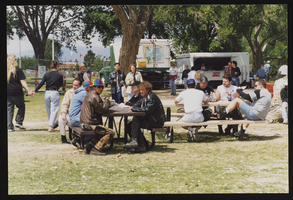
People at Gay Pride: photographic print
Date
Archival Collection
Description
Gay Pride 1998 at Sunset Park. Photographer: Dennis McBride. (4-25-98)
Image
Jane Heenan oral history interviews
Identifier
Abstract
Oral history interviews with Jane Heenan conducted by Dennis McBride on June 21 and 28, and August 30, 2005 for the Las Vegas Gay, Lesbian, Bisexual and Transgender Archives Oral History Project. In the interviews, Heenan begins by clarifying the vocabulary used within the transgender and queer communities for self-identification, comparing these terms with terms used in the medical and psychological fields. They then discusses the distinction between gender identity and sexual orientation. Next, Heenan recalls growing up and in Chicago, Illinois, coming out in the 1990s, and undergoing sex reassignment surgery. Lastly, they talk about arriving in Las Vegas, Nevada in 1994, the Las Vegas transgender support and advocacy community, and Las Vegas transgender organizations.
Archival Collection

Transcript of interview with Jimmy Gay by Perry Kaufman, April 12, 1972
Date
Archival Collection
Description
Interview with James A. Gay III conducted by Perry Kaufman on April 12, 1972. Arriving in 1946 from Fordyce, Arkansas, Gay became the first African-American mortician in Las Vegas. He later worked as Assistant Manager of the Sands Hotel and Casino and Union Plaza while serving as an executive board member of the Culinary Union. Instrumental in the Las Vegas community, Gay worked to improved race relations, addressing social, economic, and civic issues. Gay was awarded an honorary degree from the University of Nevada, Las Vegas in 1988.
Text
Frankie Perez oral history interview
Identifier
Abstract
Oral history interview with Frankie Perez conducted by Elsa Lopez and Laurents Bañuelos-Benitez on November 05th, 2018 for the Latinx Voices of Southern Nevada Oral History Project. Perez speaks about the importance of sports, and the lack of Latinx representation in teachers during high school. Perez then discusses being placed on medical hold in the military, how his transition affected his physical tests, how the 2016 election may have impacted transgendered people in the military, and how everyday military personnel feel about transgendered people serving in the military. The interview concludes with Perez discussing the Lesbian, Bisexual, Gay, Transgendered, and Queer (LGBTQ) scene in Las Vegas, Nevada and about how culture impacts which clubs members of LBGTQ community would visit.
Archival Collection
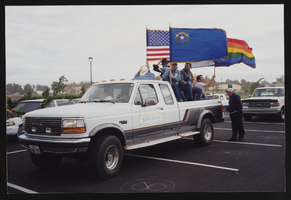
Nevada Gay Rodeo Association float at the second annual Gay Pride parade, image 001: photographic print
Date
Archival Collection
Description
Image
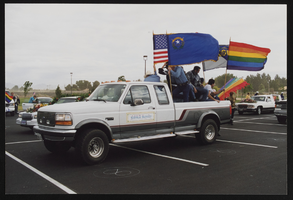
Nevada Gay Rodeo Association float at the second annual Gay Pride parade, image 003: photographic print
Date
Archival Collection
Description
Image
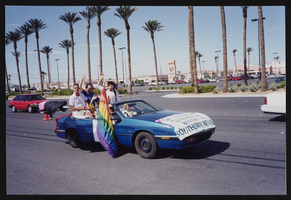
Gay and Lesbian Community Center of Southern Nevada float in the Gay Pride parade, image 005: photographic print
Date
Archival Collection
Description
Image

Nevada Gay Rodeo Association float at the second annual Gay Pride parade, image 004: photographic print
Date
Archival Collection
Description
Image
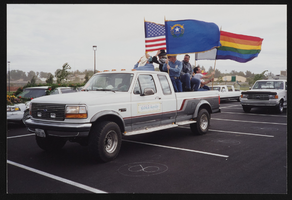
Nevada Gay Rodeo Association float at the second annual Gay Pride parade, image 002: photographic print
Date
Archival Collection
Description
Image
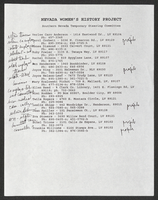
Nevada Women's History Project organizational records
Date
Archival Collection
Description
Folder from the Nevada Women's History Project Records (MS-00406).
Text
